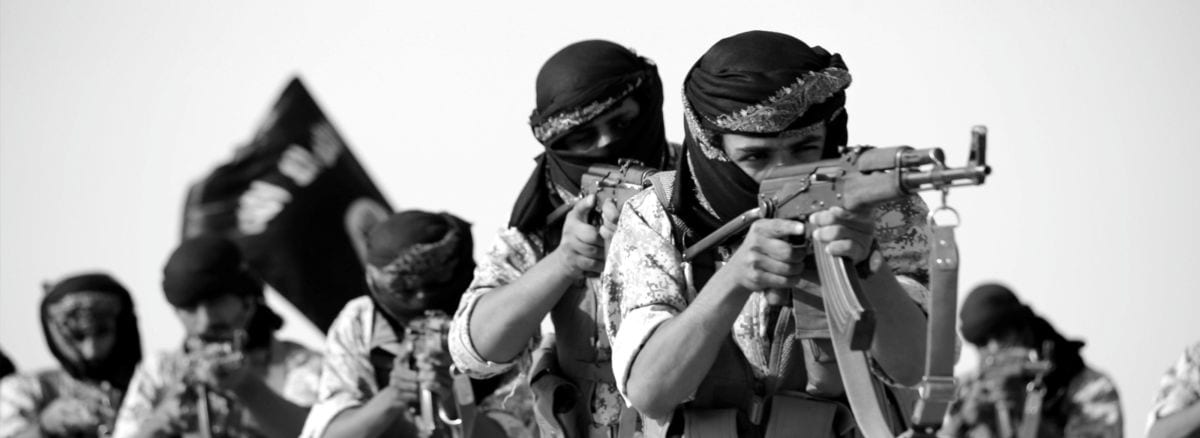ASEAN fights against trans-border crime
This article was published on 7 September 2016 in Jakarta Post
Dedi Dinarto – Research Assistant at ASEAN Studies Center UGM
Given the rising concerns over transnational organized crime in Southeast Asia, the 28th ASEAN Summit in Vientiane this week will face an uphill challenge. This holds true as the United Nations Office on Drugs and Crime (UNODC) reported a rise in production of illicit drugs and an expansion of the synthetic drug market in the region after the implementation of the ASEAN Community last year.
It is inevitable that Laos should hold up the discussion to address the issue of transnational crime for several reasons.
Vientiane’s ASEAN chairmanship this year was viewed with pessimism when it came to the issue of the South China Sea. Some of the reasons originated from Laos’ landlocked geographical conditions, which allows it to disregard the security of the sea as crucial and coherent for economic interests, and the lavish influence of China over Laos through the latest cooperation scheme, namely the Mohan-Boten Economic Cooperation Zone.
However, the importance of associating Laos’ leadership with the transnational crime issue is mainly due to the fact that the country is part of the Golden Triangle, which serves as one of the producers of narcotics and a drug transit point for shipments to North America, Europe and other regions in Asia.
Laos directly contributes to the increasing production and expansion of such transnational crime networks. At the same time, the number of arrests related to drugs has tripled in Laos over the last half decade.
On the other hand, Laos has completely ratified the United Nations Convention against Transnational Organized Crime with the protocol that cancels out the potential benefits it could gain from the narcotics industries.
Moreover, on a broader level, Kuala Lumpur’s leadership last year intensified the fight against transnational organized crime. This development is not supposed to decline under Laos’ chairmanship.
Consequently, the upcoming ASEAN Summit is to manifest the points that have been set forth and agreed within the ASEAN Regional Forum Statement on Strengthening Cooperation in the Management of Cross-Border Movement of Criminals and the formulation of a fresh ASEAN plan of action agreed at the previous ASEAN Ministerial Meeting on Transnational Crime (AMMTC).
However, in that agenda, the ASEAN member states are supposed to overlook the inter-governmental decision-making process, which is inadequate to combat transnational crime. The failure, according to professor of international affairs Ralf Emmers, was not only caused by domestic circumstances but also by its inbuilt resistance to action and institutional reforms and its inability to criminalize transnational crime.
Besides, they only focused on non-binding and unspecific measures without addressing the question of funding, setting target dates, or establishing monitoring mechanisms to assess progress.
For example, the 10th AMMTC noted the importance of growing of transnational crime as a threat against regional security.
Thus, the response was to broaden their working coverage area by adding the illicit trafficking in wildlife, timber and people smuggling to the provision involving drug trafficking, economic crimes, human trafficking, piracy, money laundering, terrorism, weapon smuggling and cybercrime. Unfortunately, this initiative demonstrated the statist yet similar approach that has been taken by ASEAN member states since 1997.
The effort to securitize transnational organized crime has been successful, but leaves behind the regional practice to combat such an issue.
Rather than having an intensive approach toward the regional threat, ASEAN member states prefer to adopt a regional agreement if it will work significantly at the national level. Therefore, there is a need for shifting the paradigm toward “shared sovereignty”.
If regional security was primarily measured based on the absence of a threat to each nation’s security, then it is now time to see ASEAN as a whole community. The term of “community” adopted at the end of 2015 duly signifies that ASEAN should move from its state-centric security into a human-centric security.
Is it possible to hear a similar voice to that which came out of Thailand’s then foreign minister Surin Pitsuwan in June 1998, who proposed to amend the basic principle of non-intervention?
What may happen in the days following the ASEAN Summit and its “dianoetic” slogan of “Turning vision into reality for a dynamic ASEAN Community” will provide the answers.




